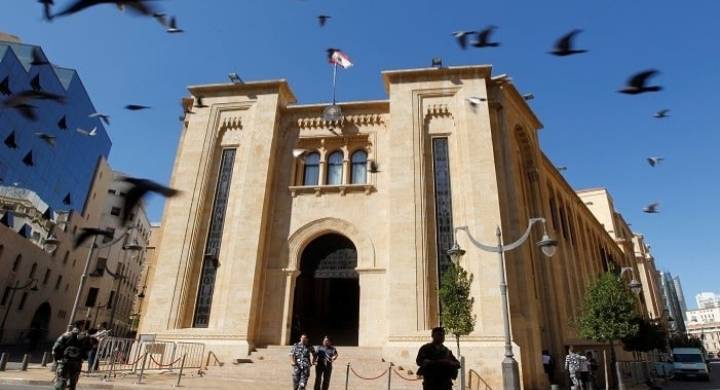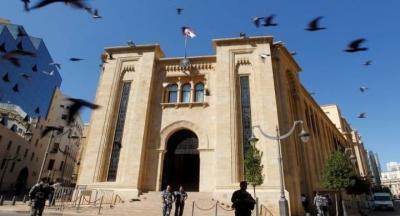The postponement of the meeting of the Bureau of the House of Representatives spared President Nabih Berri from having to call for a session that was known to be predetermined, amid the boycott by the main Christian blocs of the legislation in light of the presidential vacancy. It was understood from the statement of Deputy Speaker Elias Bou Sabaa that "what was agreed upon in the joint committees regarding the capital control law is to issue it alongside other laws, which is why the Bureau of the House decided to postpone its session to a later date that will be determined." This is seen as a new attempt to pass the session and gain more time for negotiations regarding Mar Mikhael and to convince the head of the Strong Lebanon bloc, Gibran Bassil, to participate. Bassil, who left the door open in his recent appearance for participation in case of an emergency, does not seem ready to retreat from his stance easily, given the popular loss this concession would entail in contrast to gains for both the "Lebanese Forces" and the "Phalanges."
Informed parliamentary sources about the Bureau meeting told MTV that "the position of the Free Patriotic Movement was not positive regarding participating in the legislative session, knowing that there are very important proposals on the agenda concerning Lebanese citizens," ruling out the success of efforts to reverse the "movement's" position. While the sources considered that "the continued suspension of the legislative process harms Lebanese interests," they questioned the wisdom behind this matter, pointing out that "those concerned about the presidential seat are required to take positive steps to move forward towards the entitlements instead of paralyzing the parliament."
Regarding the invocation of the capital control law to postpone the Bureau meeting, the sources clarified that "everyone knows in advance that the financial proposals regarding the restructuring of banks and financial balance were not included despite the fact that holding a legislative session was proposed. So why was the law proposal presented alone on the agenda? What has changed now? Is it required to buy time to overcome obstacles?"
As of now, there is no legislative session unless something new arises before the next meeting of the Bureau, which is not yet determined. As a result, essential files will be in jeopardy, and the conclusion is:
- No "capital control"
- Void in security institutions
- Void in local authorities with no municipal elections
- Continuation of spending based on the twelfth
- No reduction in the prison sentence for the convicted
- No approval of the amendment to the public procurement law which hampers the work of municipalities, among many others... Therefore, "where are we heading?"




